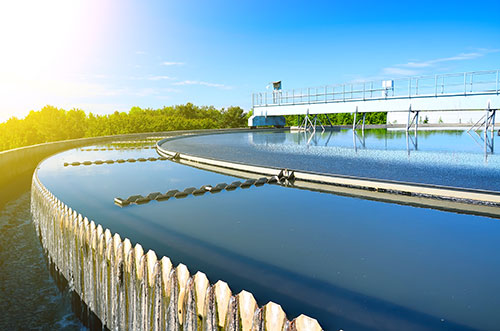
A primary clarifier treats wastewater.
Public water providers in the United States are required to monitor their drinking water to determine if consumers are adequately protected from microbiological, chemical and radiochemical contaminants. Similarly, wastewater treatment facilities perform analyses to assure that the wastewater is properly treated to protect the environment from bacteria, pathogens and other pollutants.
The Hygienic Laboratory provides laboratory certification assessments and management for the Iowa Department of Natural Resources. These were developed over the past 30 years to provide a comprehensive list of testing parameters and fields of testing for laboratory certification.
A laboratory is certified to perform a specific method for a specific analyte or analyte group. The program also provides the opportunity for a testing laboratory to become certified for a specific analyte group across multiple environmental programs. For example, a lab may acquire certification for inorganic chemicals (IOCs) within the wastewater, drinking water and contaminated site programs.
There were 184 laboratories certified in 2017. These include municipal and regional water plants, water treatment facilities and commercial laboratories. Approximately 150 laboratories perform only wastewater testing. The remainder test for drinking water, or a combination of drinking water, wastewater and solid waste. Commercial laboratories include those that are located both in and outside of Iowa that perform work in the state.
Certification in Iowa is on a two-year cycle with most laboratories receiving an onsite inspection once during that two-year period. Some laboratories, especially out-of-state laboratories that are certified in their home state, can be certified for Iowa based on reciprocity with their state’s certification or accreditation in the National Environmental Laboratory Accreditation Program. Through reciprocity, a laboratory may not require an onsite inspection.
HIGHLIGHTS
- 50th Annual Lab Symposium
- Presentation at regional Iowa Water Environment Association meetings
- Method Assistance and Guidance for Small Laboratory Programs



